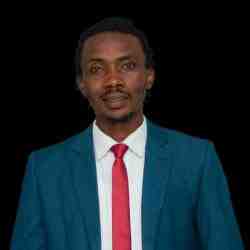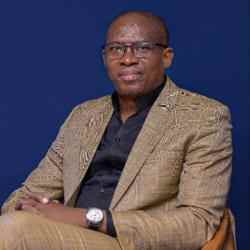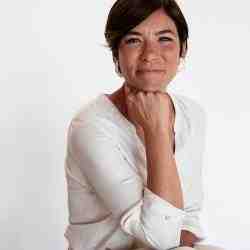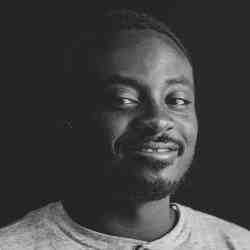Introduction
Daphne Nederhorst is combating extreme poverty in the world’s poorest countries by supporting local champions (Sawa Heroes) who have their own solutions to extreme poverty. She does this by giving them the tools to spread and scale their successful initiatives to surrounding communities that also endure extreme poverty. She is doing so by training unemployed youth journalist with video and social media skills, promoting and linking the work of Heroes to a global community.
The local media partners are also getting first hand knowledge about locally designed poverty reduction strategies in that area. Daphne is influencing the effectiveness of foreign aid strategies as well as educating impoverished communities by promoting the best practices of their local role models. Daphne’s key goal is to work with the Sawa Heroes in developing sustainable financial models that will provide a permanent and locally generated stream of funds to support the scaling-up of their projects that can reach the 1 billion people that live in extreme poverty.
The New Idea
Daphne is identifying grassroots leaders and using new media technologies to spread their stories and projects to local and global audiences. Daphne builds local media networks and uses a web platform to create and disseminate short videos that showcase the Heroes’ successes to extreme poverty and share their stories globally.
Sawa Heroes are individuals that have created their own successful solutions to extreme poverty with no or very little outside support, and create positive and long-term impact to reduce extreme poverty in their communities. Daphne has trained youth videographers in 11 target countries in videography and journalistic skills so that they are able to profile the stories of Heroes in local communities, news sources and on the international Sawa website. Heroes are continually identified through the networks of youth videographers and through partnerships involving local media, citizen organization (COs) and individuals.
Daphne will establish regional Sawa education centers where Heroes can exchange methodologies, collaborate amongst themselves, and teach surrounding communities about their solutions to foster local replication and scale up their successes.To further support the work of Heroes, and to help them sustain, expand, and scale their projects, Daphne is connecting Heroes to a global network of partner organizations. This creates a network of support for Heroes to increase their impact and disseminate knowledge about their work.
Daphne is engaging with global bodies such as the United Nations, the World Bank, and private corporations such as PepsiCo Quakers Food and the Grameen Creative Labs. She aims to influence their approaches to international foreign aid efforts and to put the focus on local and bottom-up solutions by surfacing and supporting successful projects with the aim to reach 50 of the world’s poorest countries. She is transforming Sawa’s website into an online resource center to share best practices as alternatives to traditional top-down models of international aid.
The Problem
The poorest countries in the world share similar challenges related to basic human needs such as malnutrition, health, and environmental issues. Several grassroots citizen sector organizations are borne locally out of the need to address these problems in some of the most dangerous and challenging areas of the world. The individuals leading these projects often operate with little outside support and minimal or no financial and technical resources.
Small community-based organizations suffer from lack of access to effective resources and supporting infrastructure, which may lead to the failure to scale of their projects to a larger scale to surrounding communities that also face extreme poverty.In the last 60 years, the developed world has spent about 2 trillion dollars to help poor countries, but the rich-poor divide between countries continues to increase. The UN Millennium Development Report for 2008 states that we are far away from achieving poverty eradication milestones and great efforts are required in this area.
Daphne is addressing the failures of the current foreign aid models by focusing on local efforts that create their own efforts to progress toward poverty eradication.Innovative and significant work that happens at a local level often remains local and isolated due to the lack of mechanisms to spread and popularize it. Few opportunities exist that provide a platform to replicate or scale up projects that have been successful in a particular locality. There are limited opportunities to share learning and a lack of partnership for such initiatives, which limit their levels of progress and impact.The individuals and organizations around the world with the necessary resources and know-how remain disconnected for the most part from these effective solutions. Many people have valuable skills and know-how to share with others but no accessible avenues to do so. Thus, there exists a disconnect between people who need assistance and people who are able to provide support. There is a lack of channels that connect international potential supporters with emerging local leaders.
The Strategy
Daphne uses video story telling to connect local change makers to the rest of the world and provide them with the resources they need to make change happen on a large scale. After completing university degrees in film-making, engineering, and international development, Daphne realized that these seemingly disparate choices came together to form a solution to extreme poverty. She created Sawa Global in 2007 in order to address the disconnect between local models to eradicate poverty and existing resources around the world. The rationale behind doing this is that Daphne is convinced that solutions based on local knowledge are more applicable and bring better impact than solutions brought from abroad.
Sawa identifies and selects local Heroes, disseminates their best practices to surrounding communities and connects them to a network of global partners who provide resources in a meaningful and impactful way.Daphne is targeting the 50 poorest countries in the world, where support for local leaders with successful initiatives can make strides toward eradicating extreme poverty. Sawa Heroes are awe-inspiring individuals that have developed solutions with demonstrated positive and long-term impact to reduce extreme poverty in their community. To find potential Heroes, Daphne recruits unemployed youth videographers in the target countries who work at the grassroots level. These youth videographers continuously search for and nominate Heroes. The on-the-ground nomination group also includes media partner organizations such as local COs, media groups and other relevant institutions.
Combined with members of the public and individuals in the global Sawa network, these local groups help Sawa to have a wide reach into the community and to gain better access to local change makers. Heroes must pass through a selection process with clear criteria. Until mid 2009, 209 videographers have been trained and 28 videographers have been recruited in 14 countries; seven of which have since become country representatives. Sixteen Heroes in 11 of the 50 focus countries have been selected from a list of 100 potential candidates.Once Heroes are selected, they are profiled and connected to a global community.
Sawa invites its youth videographers to workshop trainings in digital video story telling and use of social media tools, and introduces them to the Sawa model. Videographers then create profiles and short videos on Heroes and their success stories. The videos are used as a means to connect these powerful stories to local communities that also endure extreme poverty and individuals and organizations around the world. In order to reach the wider local network of youth videographers, Daphne continues to develop partnerships with local media schools to introduce and explain Sawa, offer workshops, provide training, and increase local access to technical support. The youth videographers have the opportunity to expand their skill sets and will soon become eligible for partial scholarships from Sawa. Daphne has conducted in-country workshops in Fiji, Vanuatu, Senegal, Cape Verde and Solomon Islands and Haiti. She is also building permanent partnerships and training facilities in these countries. In 2009, workshops for videographers were conducted in five focus countries.
Sawa uses Heroes’ videos to give them exposure and connect them to local communities and to a network of partners in the Sawa network. Heroes’ profiles include their needs for support, which potential partners can match to their own skills. Potential partners are organizations and individuals with specific resources and skill sets that match the Heroes’ needs. Sawa partnerships encourage the exchange of ideas, skills and partnerships to grow the success of the Hero’s project (e.g. assistance in developing a business plan or fundraising strategy, sharing and conservation methods, and so on), rather than donation of funds. For example, Sawa has connected a Kenyan Hero with Canadian medical professionals and a student from the University of British Columbia (UBC) who will work in Kenya for the next three months to develop an HIV/AIDS manual. A class from the Sauder School of Business at UBC will also work in Kenya with a Hero to strengthen his microcredit approach. Another Hero, working with 300 former Rwandan child soldiers, was connected to a U.S. organization that has offered him job training to improve the impact of his work.
Sawa has partnered with several large organizations through this mentorship model.Although Sawa has grown to this size with a core team of 22 volunteers and Daphne’s relentless commitment as well as investments from individuals and foundations, the organization is ready to move to its next phase of growth. In order to build up Sawa’s sustainability, Daphne recently partnered with UBC’s Sauder School of Business, which is providing one and a half full time staff to work on fundraising. This strategic partner and Daphne’s own fundraising efforts are on their way to bringing Sawa Global’s budget to the next level to sustain the organization’s rapid growth.
Daphne is also working on developing an income generation strategy through fee for service activities, which will guarantee her organization’s financial sustainability by 2015. Daphne aims to profile 100 Heroes by the end of 2010. By 2015 she will have selected 1,000 Heroes and built ten Sawa Hero Centers that will operate as hubs for local solutions and collaborations. She is working on a new interactive website and a media strategy that will target local and global media. She has also partnered with the Projecting Change Film Festival to showcase the Sawa videos to their large audiences. Daphne plans for Heroes’ stories to be used by news networks as examples of positive impact, or to be compiled into a TV series. By June 2009, Sawa had selected and featured 16 Heroes in 11 countries who are now connected with highly qualified partners. These Heroes work in Haiti, Kenya, Rwanda, Nigeria, Solomon Islands, Vanuatu, Tanzania, Uganda, Cape Verde, Zimbabwe, Zambia and Senegal and are improving the lives of more than 300,000 people, planted half a million trees and restored 10,000 hectares of tropical forest.
The Person
Daphne was born in the Netherlands and grew up in Tanzania. She has been greatly influenced by her parents. Daphne’s mother is a diplomat and her farther is a Civil Engineer specializing in tropical community water supply and sanitation. They have both challenged foreign aid model since the early 1970s, teaching Daphne never to impose her own ideas on impoverished communities as an outsider. At a very young age, she had the opportunity to see some of the poorest areas in the world and this left a deep impact on her. Daphne was deeply touched by the challenges in these areas and mesmerized by the strength of local people to find solutions. She has since felt a strong sense of responsibility to help impoverished communities and has wanted to give a voice to these most inspiring, but unknown, leaders.
Daphne studied and worked in over 43 countries and completed degrees in film and video production, international development and environmental engineering. During college, Daphne created a government-sponsored project on the development of a park for the Maasai people in Kenya and northern Tanzania. Daphne recorded the stories of the local people and gave them a voice by involving them in decision-making about the park. By disseminating those stories widely, she contributed to the establishment of a protected area for the Maasai people.
During her master’s degree in environmental engineering, Daphne wrote her thesis on access to clean water for low-income populations living in Tanzania’s slums. Her thesis was presented to government agents in Tanzania and South Africa, the World Bank in Washington, and the Canada International Development Agency (CIDA). Through this, she received support from the World Bank and other international organizations. After spending 15 years working for major organizations, including the World Bank, the UN, governments and international NGOs, Daphne realized that these foreign aid models were neither effective nor aligned with her vision of supporting local change for the 1 billion people that live in extreme poverty.
Daphne’s years of engagement in film and video projects in many developing nations have given her significant exposure to a variety of social issues. She combined her passion to help the impoverished, her experience working with diverse cultures, and her education to work toward her vision of helping local heroes to eradicate extreme poverty. Daphne resigned from her corporate job in 2007 and since then has dedicated herself full time to creating Sawa Global.




